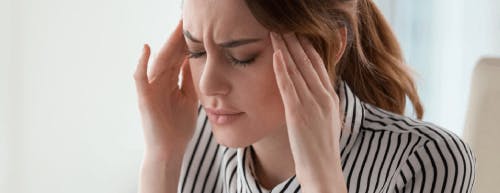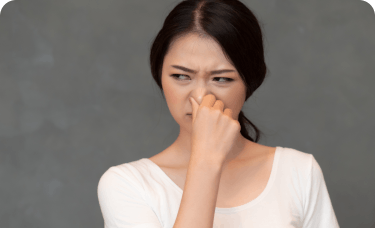Taking action to reduce migraines
While your migraines may be a fact of life, there are steps you can take that may help reduce the severity or frequency of your migraine attacks.1
The best course of action may be the practice of "good headache hygiene," coupled with early intervention when you notice migraine warning signs.
The American Headache Society defines headache hygiene as “the practice of taking care of yourself in a way that will reduce the likelihood, frequency, intensity, and severity” of migraines.3 It includes:
- Good, regular sleep habits — both too little sleep and oversleeping can be migraine triggers.1,2
- Regular exercise* — aerobic activity reduces stress and increases brain chemicals that control pain1,2
- Healthy and regular eating habits — don’t miss meals or go hungry; drink plenty of water to avoid dehydration; skip the diet drinks and junk food1,2
- Stress reduction — exercise is a well-known stress buster; meditation, yoga and biofeedback may also help reduce migraines1,2
- Trigger avoidance — to identify your personal migraine triggers, keep a migraine diary
The importance of early migraine intervention
Acting swiftly to relieve a migraine can blunt its worst symptoms.1 To practice early intervention:
As soon as you feel any migraine warning signs, take your migraine medicine as discussed with your healthcare professional — whether an over-the-counter migraine medicine like Excedrin Migraine or a medicine prescribed by your doctor.1
Always keep your migraine medicine handy: at work, school, home, and when traveling3









